So, You’ve Been Told You Have Periodontal Disease. What Is It?
Periodontal Disease Information
So, You’ve Been Told You Have Periodontal Disease. What Is It?
Periodontal Disease is an inflammatory disease. The inflammation in your gums is part of the body’s natural defence mechanism and in your gums, it occurs in response to a build-up of plaque (bacteria) on the teeth. In some patients, this natural inflammatory process is too severe or poorly controlled and the inflammation actually damages the supporting structures of the teeth, namely the gum and supporting bone.
Who Gets Periodontal Disease?
Approximately 10% of the population are severely affected by periodontal disease but milder forms of the disease are thought to affect around 80% of people by the age of 60. There appears to be some genetic link with periodontal disease, with trends running in families. If you have been diagnosed with periodontal disease, then potentially your siblings are at an increased risk of having the same problem and potentially your children may also be an increased risk. Ideally they should all be screened and monitored for potential problems by their general dentist.
Does Anything Make It Worse?
The single biggest risk factor for developing gum disease is poor oral hygiene. Allowing plaque to sit around your teeth and gums for prolonged periods of time can provoke the destructive inflammatory response.
Next to poor oral hygiene, the second biggest risk factor is smoking. Smokers are four times more likely to develop gum disease and lose three times more teeth than non-smokers and they also tend not to respond as well to treatment. If you are a smoker, then stopping or reducing will help. Should you wish to stop smoking, the best people to speak to are your GP or medical practice nurse. We are also happy to offer advice.
There are other conditions such as undiagnosed or poorly controlled diabetes, poor diet and increased stress which can also play part. If you have been diagnosed with periodontal disease it is strongly recommended that you see your GP for a routine diabetes test.
Can Periodontal Disease Be Treated?
It is no longer considered inevitable that your teeth will be lost if you have periodontal disease. In most cases it can be treated successfully, however, we cannot cure it. Similar to diabetes, there is no cure but by controlling the disease we can prevent further damage and allow you to keep your teeth for a long time.
What Can I Do To Help?
Your role in the management and stabilisation of periodontal disease is crucial. The disease cannot be controlled without your homecare efforts. We will show you techniques aimed at cleaning your teeth to a very high standard so that bacteria levels are kept below the level that triggers inflammation. This differs from one patient to the next but without this change in homecare, our treatment cannot and will not be successful. Controlling the risk factors outlined above is also an important part of helping yourself to control your disease.
What Treatment Will I Need?
Once you are successfully controlling the plaque build-up, we will help by removing the deposits that you cannot reach or are attached firmly to the teeth. This can take time and you may need several treatment
sessions over a period of weeks or months. This treatment will be carried out by our hygienist who is specifically trained in these techniques. It is impossible to know exactly how long it will take to stabilise the condition but the harder you work at home, the quicker improvements tend to happen. Occasionally, in more severe cases, further treatment may be required in the form of surgery and you would be referred to a Specialist in Periodontics if this were the case.
Does Periodontal Disease Cause Bad Breath?
Often yes, although technically it’s the mature plaque bacteria that causes the odour rather than the disease in the gums. If plaque is not removed regularly and is allowed to mature it becomes a medium for anaerobic bacteria which can release a foul smelling odour resulting in bad breath.
If It’s All About Bacteria, Why Can’t I Just Have Antibiotics?
This is not an infection. It is the body’s reaction to removable plaque. When the plaque is physically disrupted by you and by us, the inflammation will resolve and the disease will stabilise without the need for antibiotics. All that antibiotics would do is kill the bacteria whilst you were taking the medication. As the mouth is a perfect breeding ground for plaque, as soon as you stop the course of antibiotics, the bacteria would return and the problem would restart.
What If I Choose Not To Have Treatment?
If the bone loss around teeth is not controlled then teeth may become loose, the gums may shrink and in some cases teeth will become infected and fall out. There is also compelling evidence that untreated periodontal disease can have effects on general health and is specifically inked to some serious illnesses such as heart disease.
Are There Any Side Effects To Treatment?
Due to the fact that there has been irreversible bone loss, when the inflammation resolves it is likely that you will experience some gum shrinkage and possibly some tooth sensitivity. These are unavoidable side effects of treatment and you must remember that failing to control the disease may result in tooth loss.
Why Do I Need To Be Treated By A Dental Hygienist?
Dental Hygienists are specifically trained in the treatment and prevention of gum disease. This is their field of expertise and they are trained to very high standards. It is most likely you will have been asked to see Faye Donald one of our in house hygienists. Faye has over 20 years experience in the dental industry. She has worked alongside a periodontal specialist for over 10 years and has twice been awarded the prestigious title of ‘Best Hygienist’ at the National Dental Awards.
What Next?
The hygienist will complete a personalised full history and complete a comprehensive assessment of your gums. This may include the need for x-rays. She will outline a course of treatment and the number of appointments she estimates will be necessary to bring your gum disease under control. This varies from person to person and is also highly dependent on how quickly you reach a sufficiently high standard of plaque control. Our receptionist will provide you with an itemised estimate of the costs involved once the initial assessment has been completed.
If you have any further questions please do not hesitate to ask at your next appointment or email us on info@mapleleaf-dental.co.uk





